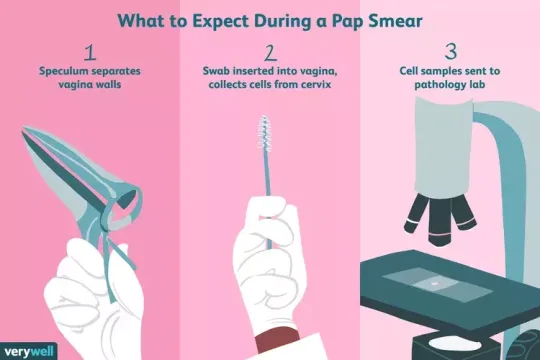Each year, over 200 women in Singapore are diagnosed with cervical cancer, with 70 deaths from the condition1. Survival rate can be improved if cervical cancer is detected and treated early.
In this article, we will discuss cervical cancer screening, including who should get screened, the types of tests available, and how the screening is conducted.
Jump to the following:
Early Detection is Key – The Importance of Regular Screening
Cervical cancer is sometimes described as a silent killer because there are usually no noticeable symptoms in its early stages, and the abnormal cancer cells are slow to develop and can only be detected during a screening. So by the time one experiences symptoms, it would usually be at an advanced stage. The best way to detect cervical cancer is early screening.
Cervical Cancer Screening Methods
Regular screening typically involves a visit to a General Practitioner (GP) clinic or a specialised healthcare provider to find precancerous cervical cell changes, when treatment can prevent cervical cancer from developing.
Sometimes, the screening would find cervical cells that look abnormal but are not cancerous. These abnormal cells are known as cervical dysplasia (or cervical precancer) as the cells have the potential to become cancerous if not treated. Early detection can help prevent cancer in the cervix from becoming invasive and spreading to nearby tissues, organs, or regional lymph nodes.
There are three main ways to screen for cervical cancer:
- A Pap smear/test helps detect precancers or abnormal cellular changes in the cervix. This is a popular screening method to detect early signs of cervical cancer. It involves the health practitioner collecting cells from the cervix, and then examining the cells under the microscope to detect any abnormalities.
- A ThinPrep Pap Test (Liquid-Based Cytology) is similar to the traditional Pap Smear test but incorporates an advanced screening technique that improves the detection of abnormal cells and increases the accuracy of results.
While it similarly involves the collection of cells from the cervix, for a ThinPrep Pap Test, the cells are placed into a liquid-based solution for better sample preservation before analysis. The health practitioner will rinse the cells into a vial filled with a preservation solution to ensure that the cells are more readily released into the liquid, making it easier to capture virtually all of the cells. - A HPV test is done by collecting a sample of cells from the cervix. The cells are checked for the DNA (genetic material) to detect high-risk HPV strains that are more likely to cause pre-cancers of the cervix.
HPV Testing can be combined with a ThinPrep Pap Test to provide a more comprehensive assessment of the risk of cervical cancer.
When to get screened for cervical cancer
Statistics show that the majority of women who are diagnosed with cervical cancer are between the ages of 35 to 60 years old, so women of these ages should go for regular screenings and consult a doctor if any symptoms surface.
Additionally, if you have been vaccinated against the HPV virus before, this does not mean you are not at risk. This is because the vaccine does not protect against all cancer-causing HPV sub types.
If you have had a total hysterectomy, where both the uterus and cervix have been removed for a non-cancerous condition such as heavy bleeding or fibroids, then screening is not needed. However, for those that have undergone only a partial hysterectomy where the cervix was not removed, or if you previously had cancer or precancerous condition, you should get screened regularly.
Here is a useful guide on when to schedule your cervical screening:
25-29 years old: If you are sexually active, consider getting a ThinPrep test, and plan for regular screenings once every 3 years.
30-65 years old: At this age, a HPV test is recommended once every five years, as it is more effective in determining your risk of developing cervical cancer.
> 65 years old or if you have reached menopause: Check with your doctor on whether you need to continue with your regular screenings. If your regular screening test results have no abnormality, you can likely stop your screenings.
You may need to go for more frequent screenings if you:
- have had a recent abnormal cervical screening test or biopsy result
- have a weakened immune system
- are HIV positive
- notice some symptoms of cervical cancer
Symptoms of cervical cancer
If you notice symptoms, do not wait and quickly book an appointment for a cervical cancer screening as soon as possible.
Some common symptoms of cervical cancer are:
- Irregular vaginal bleeding between periods or after menopause
- Foul-smelling vaginal discharge that is watery and bloody
- Lower abdominal pain or pain during sexual intercourse
- Vaginal bleeding after sex

Family Medicine Clinic’s Cervical Cancer Screening
When it comes to cervical cancer screening, it is important to choose a trusted healthcare provider, and consider the option to combine the ThinPrep Pap and HPV tests that will check for abnormal cells, cervical cancer, and precursor lesions.
Preparing ahead and what to expect for Cervical Cancer Screenings
Scheduling the test
If you are still menstruating, make an appointment for your screening 14 days after the start of your menstrual period. This is the ideal time as the clearest, cleanest sample of cervical cells can be obtained.
If you have reached menopause, you may schedule your screening at any time of the month.
What to Wear
On the day of your health screening, you will be asked to undress from the waist down and remove your underwear. The nurse will give you a paper drape to place across your middle and upper thighs to protect your modesty. Consider wearing a dress or a skirt so that you can just lift that up or opt for comfortable clothing like shorts/ pants that can be easily removed.
Things to note before a screening
Avoid the following activities or products at least 48 hours ahead of your screening as they can irritate the cervix and may affect the cell sample collection.
- Having sexual intercourse
- Swimming
- Soaking in a bathtub or hot tubs
- Douching
- Lubricants or Spermicides
- Vaginal creams/medications
- Tampons
If you are currently taking any medication, please consult your doctor beforehand.
What to expect during a screening

Photo Credit: Very Well Health
Pre-test
You will be asked to lie on your back with your buttocks right at the edge of the examination table. Your knees will need to be bent and placed in the stirrups on either side of the table to ensure you keep your knees apart while the doctor takes the sample.
During the test
A plastic speculum will be inserted into your vagina to hold the walls of your vagina open. Usually, a lubricant will be applied on the speculum to make it easier to slide inside. You may feel some pressure as the speculum is adjusted to allow a clear view of your cervix. You may hear a clicking sound as the practitioner widens the speculum.
The doctor will ask you to take deep breaths to relax, which will help make it less uncomfortable. A small instrument will be used to collect a sample of cells from the cervix, and you may feel some pain or discomfort but that should be over very quickly, typically in a few minutes, and afterwards you will be given tissues so that you can remove any leftover lubricant from around your vagina before you get dressed.
After the cell samples are collected, they are are sent to a laboratory for further examination.
Post-test
The procedure to collect cell samples is the same across all tests. If you are doing both a HPV test and a ThinPrep test for more accuracy, a second swab for your cell samples is not needed. (Traditional Pap smear test and HPV test will require two separate swabs).
Results of the Screening
In most cases, it takes around one to two weeks to receive the results. However, this time frame can vary depending on factors such as the specific test used and the laboratory's workload.
A negative result means there are no abnormal cells, while positive results means that pre-cancer cells have been detected. If there is an abnormality, you will be required to return for a follow up consultation at our clinic, and you will be referred to a specialist doctor.
Treatments of early-stage cancer include:
- Cone biopsy (conisation)
- Laser surgery
- Loop electrosurgical excision procedure (LEEP)
- Cryosurgery
- Hysterectomy
Risks of Cervical Cancer Screening
There are some potential risks of screening:
- Pain or Discomfort: Some women may experience pain or discomfort during the screening, such as pressure or slight cramping. If you experience any pain, don't hesitate to let the doctor know
- Bleeding: It's not uncommon to have light spotting or minimal bleeding after the screening. This is usually temporary and resolves quickly. You may want to bring along a pantyliner to use in case light bleeding occurs after the test.
- There are incidences where the test may come up as “unsatisfactory”. These could be due to:
- Too few cells being collected
- A small number of abnormal cells
- Blood or inflammatory cells in the sample hiding the abnormal ones
In such circumstances, the doctor will recommend to repeat the test in two to four months.
Overall, regular cervical cancer screening to detect and prevent cervical cancer early is important and should not be put off as there are no serious risks of the screening.

Summary
Remember that having no symptoms does not mean you are not at risk of cervical cancer and it is important to schedule regular screenings (every three years for Pap tests and every five years for HPV tests). Women who are sexually active and between the ages of 35 to 60 years old are in the high-risk group and should take extra care if they experience any symptoms. If you suspect you may have any symptoms, quickly book an appointment for a consultation with our doctors - it’s better to be safe than sorry.
Our NTUC Health Family Medicine Clinic (FMC) offers the ThinPrep Pap test to check for any precancerous cells, and the HPV test to detect the HPV virus. Call us at 62812638 or contact us here to make an appointment. Let us know if you prefer a female doctor too. Remember, cervical cancer can be prevented with early detection, so plan for regular screenings to ensure your well-being remains safeguarded.
1 Singapore Cancer Registry Annual Report 2018, National Registry of Diseases Office (released 31 March 2021)


